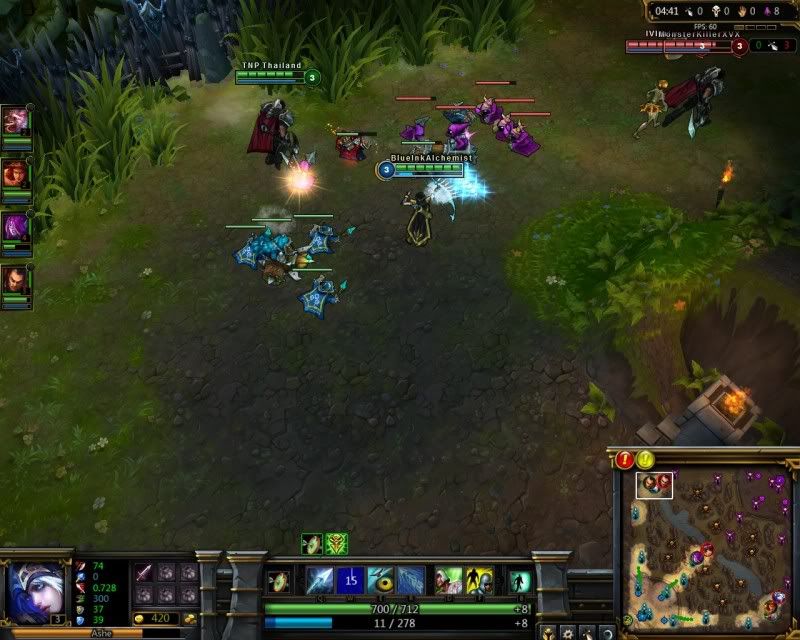
Double Darius action! But which one is more OP?
League of Legends has been called many things, from a DOTA knock-off to an ongoing Dunning-Kruger effect study. I know people who consistently call it a terrible game. It has its share of flaws, to be sure: the art direction of female champions can be quite dodgy at times, the model of its microtransactions and the seemingly arbitrary nature of sales and point gain rate can be called into question, and the community can be quite caustic and deriding, though not (thank the Maker) to the degree of X-Box Live. Yet.
Over and above other objections are those regarding the characters players choose to represent them in the Fields of Justice. Every few weeks, sometimes more often, Riot Games introduces a new champion. More often than not, the newcomer’s abilities and scaling power dwarfs that of other long-standing champions instead of rivaling it. While this is not always the case, it happens often enough that the new champions are labelled as overpowered, and Riot is forced to take time to re-examine them and perhaps adjust the balance of power in the next patch.
Along with this comes a less obvious but more insidious problem. As competitive players lean towards certain champions for their team compositions, and new champions join the roster, some older champions, around since the inception of the game, fall by the wayside. Their abilities may get tuned down in power (“nerfed”) but never readjusted to remain on par with others (“buffed”). Thus, they rarely see play, and some have even come to be regarded almost universally as bad champions that no sane champion would ever pick, unless they were trolling.
The source of this apparent problem, according to some, is that League is growing vertically, not horizontally. Given that it’s a young game, going through spurts like this is perfectly natural. If the trend continues, however, other games may learn from this failing before Riot does. As new champions with hitherto unknown abilities continue to join the roster while previous champs remain as they are, naturally the older ones will be outclassed. But did you notice how I used the word “apparent”? It’s possible this “problem” isn’t a problem at all.
With a few exceptions, no champion can be slapped with the broad label of “bad”. Every champion has something – a crowd control ability, a natural escape, a snowballing capacity for damage – they can offer a team. If the summoner who chooses that champion is competent with them, a relatively unknown or underused champion can suddenly be dominating the game. And even if domination doesn’t happen, competent players can often work around or directly against the power of new champions. It’s possible that the skill set of the “OP” newcomer gets entirely shut down when a much older champ ends up against them. It’s just a matter of finding the ‘bad’ champ and dusting them off, so to speak.
Theorycrafting remains a big part of strategy games in general and League in particular. Sites and communities are dedicated solely to examining the entire roster, providing guidance on how to build champions for certain situations or modes of play, and arguing about which champs are OP and which are terrible. As much as major tournament setups may try to convince you otherwise, not every team needs to have one golden composition to always win. Every player on the team has different taste, abilities, skills, and flaws, and they can and should choose their champions accordingly. The more a champ is in line with a particular player’s style of competition, the more fun that player will have, regardless of the outcome of the game. There will be the occasional hard counter situation where a player’s entirely locked down, but these incidents tend to be isolated. And the plethora of champion choice in League of Legends, for all of its inherent balance issues, means that no player is ever railroaded into a single choice of champion or even role. Nor should they be.
This, then, is my advice, fellow summoners: do what you like, and if you’re not having fun, chances are you’re doing it wrong.

